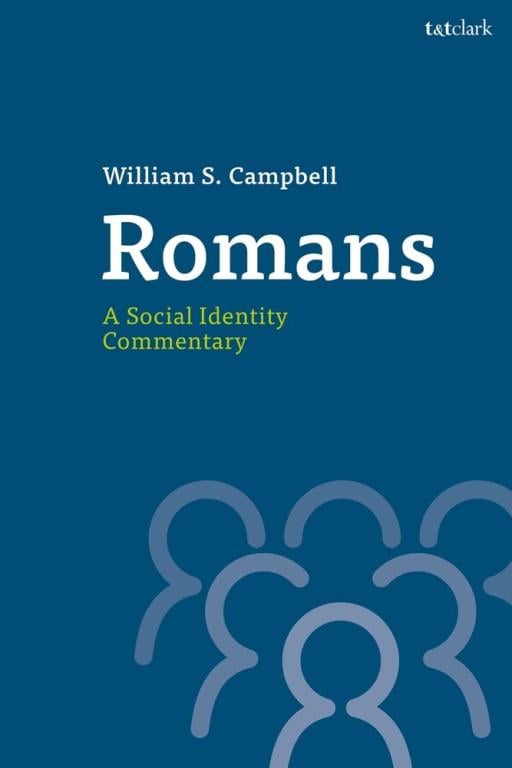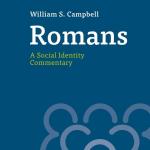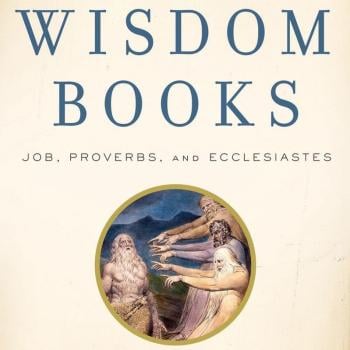On pp. 123-24 Campbell make the interesting point that Jews and Gentiles are judged differently, and Gentiles are in a dire situation since they have no covenantal relationship with the true God and so no means of atonement and forgiveness, whereas Jews are guilty of disobedience to the law and will be judged by the Mosaic law, but they have a means of atonement and so of forgiveness. The problem with making a sort of blanket statement like that about Jews is that the OT law doesn’t provide for sacrifices and atonement for deliberate premeditated sins like murder and adultery as Paul in his speech to Jews in Acts 13 reminds us. This is also likely why we see David in Psalm 51 throwing himself on the mercy God—‘create in me a clean heart….cast me not away from your presence’ because there was no sacrifice he could offer to atone for his sins involving Bathsheba and her husband.
I don’t really think Campbell and others can get around the universalism of 3.20 ‘by works of the law ‘all flesh’ cannot be set right with God’. This is so for two reasons: 1) Paul believes in the universality of sin and of all being sinners, and that all need Christ, the Jewish messiah to redeem them. Indeed, Paul is exhibit A that even very observant Jews need to be redeemed by Christ; 2) while allowing that comparatively speaking Gentiles are far worse sinners that Jews, and so some Jews could be said to be righteous by comparison, nevertheless all need the grace of God in Christ to be saved; 3) here again is where the work of Sanders is helpful. He is right that OT religion is not some sort of graceless religion so that we could pit Judaism in general vs. Christianity as religions of works righteousness vs. religions of grace. This is false. What is however true is that there were plenty of early Jews who believed that by works righteousness, by obedience to Torah they maintained their righteousness before God and so did not need to be ‘born again’ or a new creature in Christ. And herein lies the rub. Paul believes that not merely getting in but staying in is a matter of God’s grace, and not just obedience after one gets in. What makes clear Paul’s view of the universal scope of sin is Rom. 5.12-21 where we hear about Adam and his sin. As we shall see Rom. 5.12-21 prepares for the discussion in Rom. 7.7-13 where Adam speaks in a speech in character passage and he is not talking about a commandment given by Moses, he’s talking about the singular commandment he had (and he was the only person other than Eve who had only one commandment). It was later Jewish reflection on the Genesis story that led to the conclusion that the ‘thou shalt not eat…’ was a form of the later commandment ‘thou shalt not covet’.
At 10.3 Campbell does not pay attention to ‘they tried to establish righteousness for themselves’ (by keeping Torah), as a critique of Jews who don’t follow Christ. In Paul’s view everyone ultimately must receive the righteousness that comes from Christ now that the messianic times have dawned, and so there is a critique here of Jewish ‘works righteousness’. i.e. by doing the Law. See the volume by Seifrid, Carson, and O’Brien, on Variegated Nomism Vol. 1: The Complexities of 2nd Temple Judaism. Examples include. 4 Ezra 7 4; Sirach 3:14, 30; 16:14; 2 Baruch 14:12; 24:1; 41:6; Testament of Abraham A12:12–13; A 14:2–4; Rule of the Community (1QS) I, 7–8; III, 9–12; Pesher Habakkuk (1QpHab) VIII, 1–3; Miqsat Ma‘ase Ha-Torah (4QMMT) C 26–32; m. Abot 2:16; 3:15; 4:11, 22; and t. Qiddushin 1:13–16. There are more examples. So a critique of trying to establish or maintain one’s relationship with God simply by doing works of the Law is a critique of some actual Jews in early Judaism, but not necessarily all Jews.
On p. 126 Campbell suggests that what dikaiosune theou means, at least primarily, is God’s covenant fidelity to Israel. What is odd about this assertion is that not only is Paul mainly addressing Gentiles and talking about right standing or rectification for them in Rom. 1-2, but also interestingly, this is what Brueggemann and others have asserted hesed means in the OT— and they are wrong. The term hesed is even applied to Rahab and Ruth in the OT and has the more general meaning of God’s loving kindness to whomever. It’s not a term that specifies a covenant relationship with Israel. And I would say the same applies to dikaiosune theou which in the first instance refers to God’s own just, holy, moral character, as demonstrated in 1.18-32, against all idolatry and immorality by whomever practices it, in this case mainly Gentiles. I do think that all the dikaios word group needs to be interpreted together— righteous, righteousness, to make righteous or perhaps count as having right standing with God. I would have thought you would pick the singular reference to pistis theou in Rom. 3.3 to mean the faithfulness of God to refer to his promises for Israel etc. Not dikaiosune theou which has a broader meaning involving both Gentiles and Jews.















